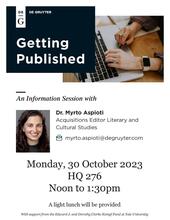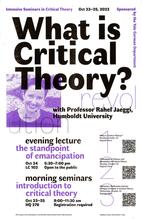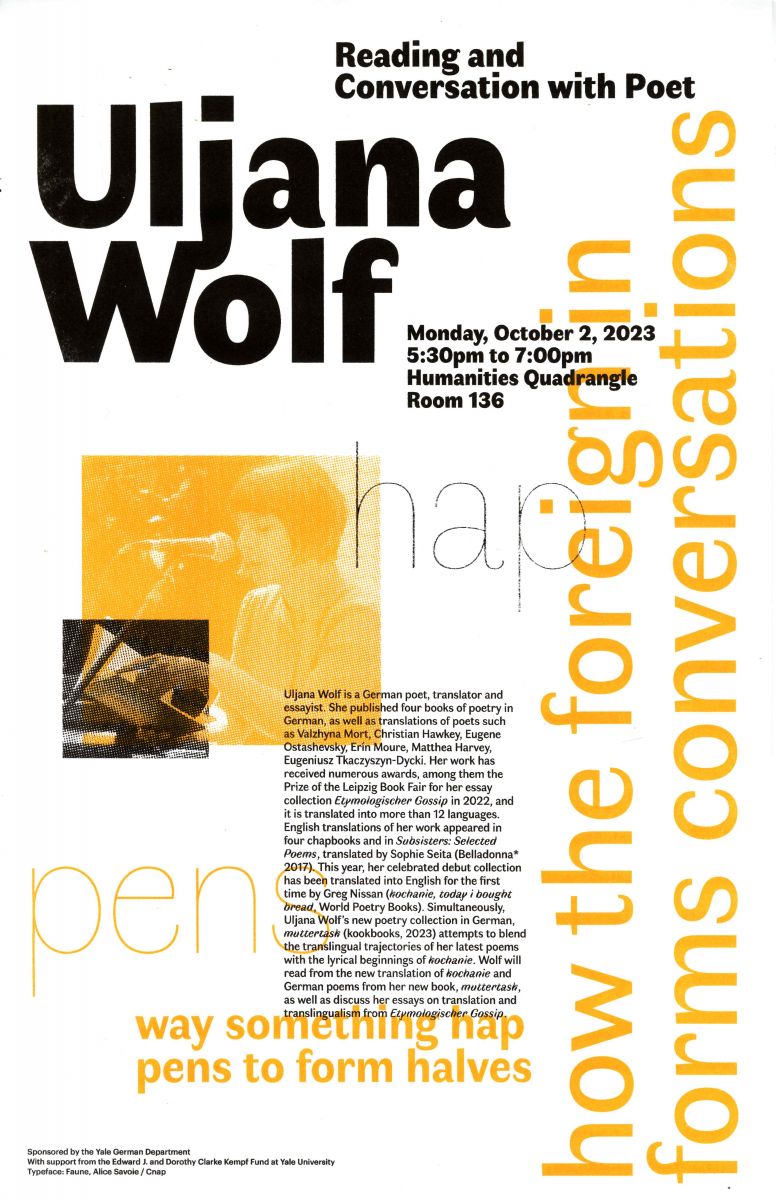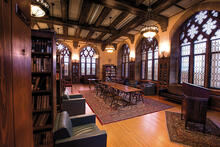Colloquium Archive
Join the German Department for a
Roundtable with the Editors
of Walter Benjamin On Goethe
Friday October 24th, 1-3pm, HQ 136
A light lunch will be served
“The value of On Goethe consists not least in allowing for a deepening understanding of Benjamin’s concept of criticism, and especially the relation between truth, criticism, and the work of art.”
Anthony Curtis Adler, Los Angeles Review of Books
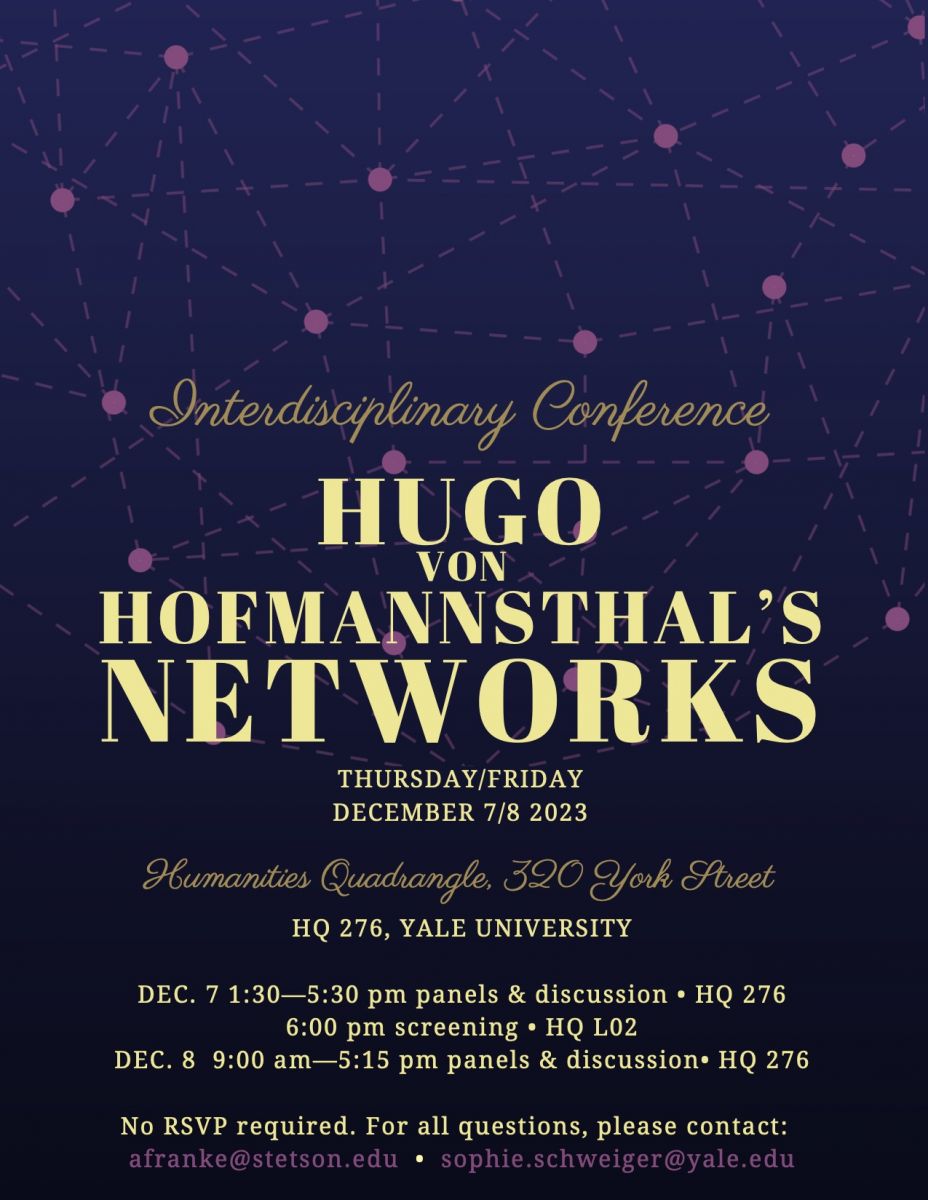 Two-Day Conference on Hugo von Hofmannsthal—’without’ Hugo von Hofmannsthal, with a focus on his network of artistic collaborations—in celebration of his 150th anniversary, February 2024. Open to the Yale community. No RSVP necessary.
Two-Day Conference on Hugo von Hofmannsthal—’without’ Hugo von Hofmannsthal, with a focus on his network of artistic collaborations—in celebration of his 150th anniversary, February 2024. Open to the Yale community. No RSVP necessary.
See full schedule here.
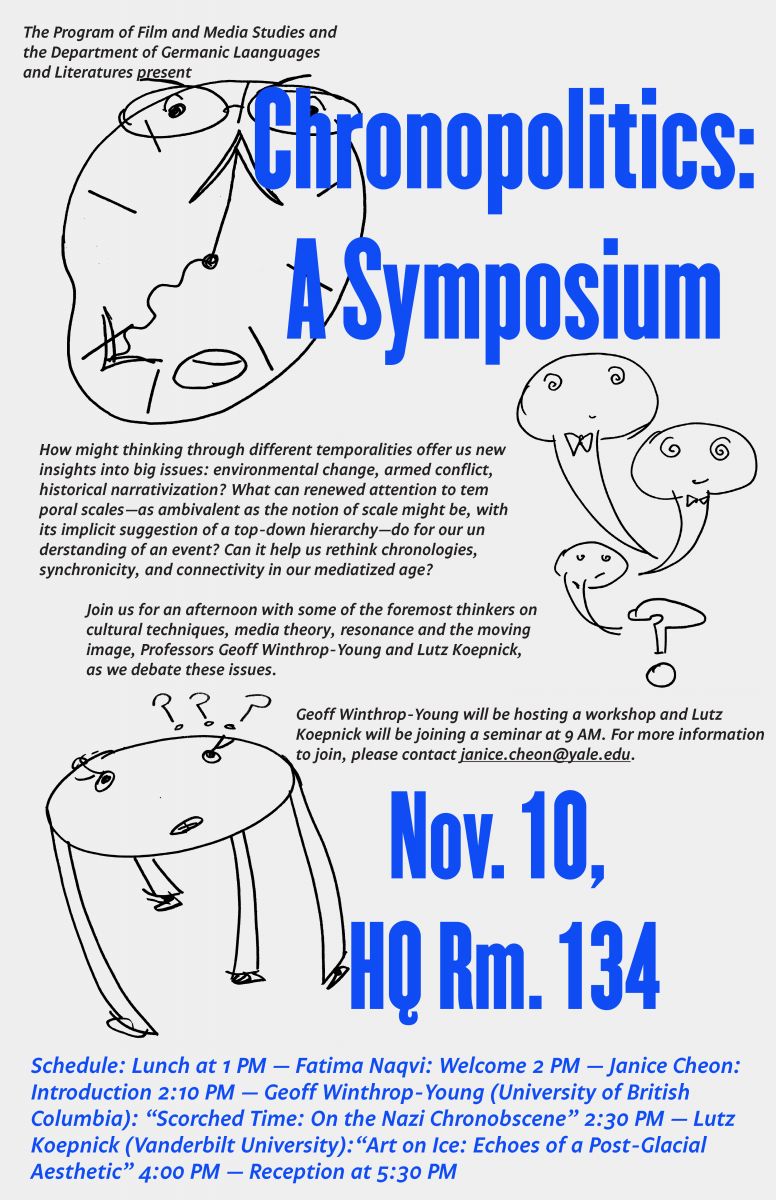
The Program of Film and Media Studies and the Department of Germanic Languages and Literatures present
Chronopolitics: A Symposium
Humanities Quadrangle, Rm. 134
“Interglacial Narrows: Readings by Pierre Joris”
Drawing on his own poems and his work as a translator and essayist, Pierre will discuss his relationship to the Bukovinian poet, other writers he has translated and read from his recent work.
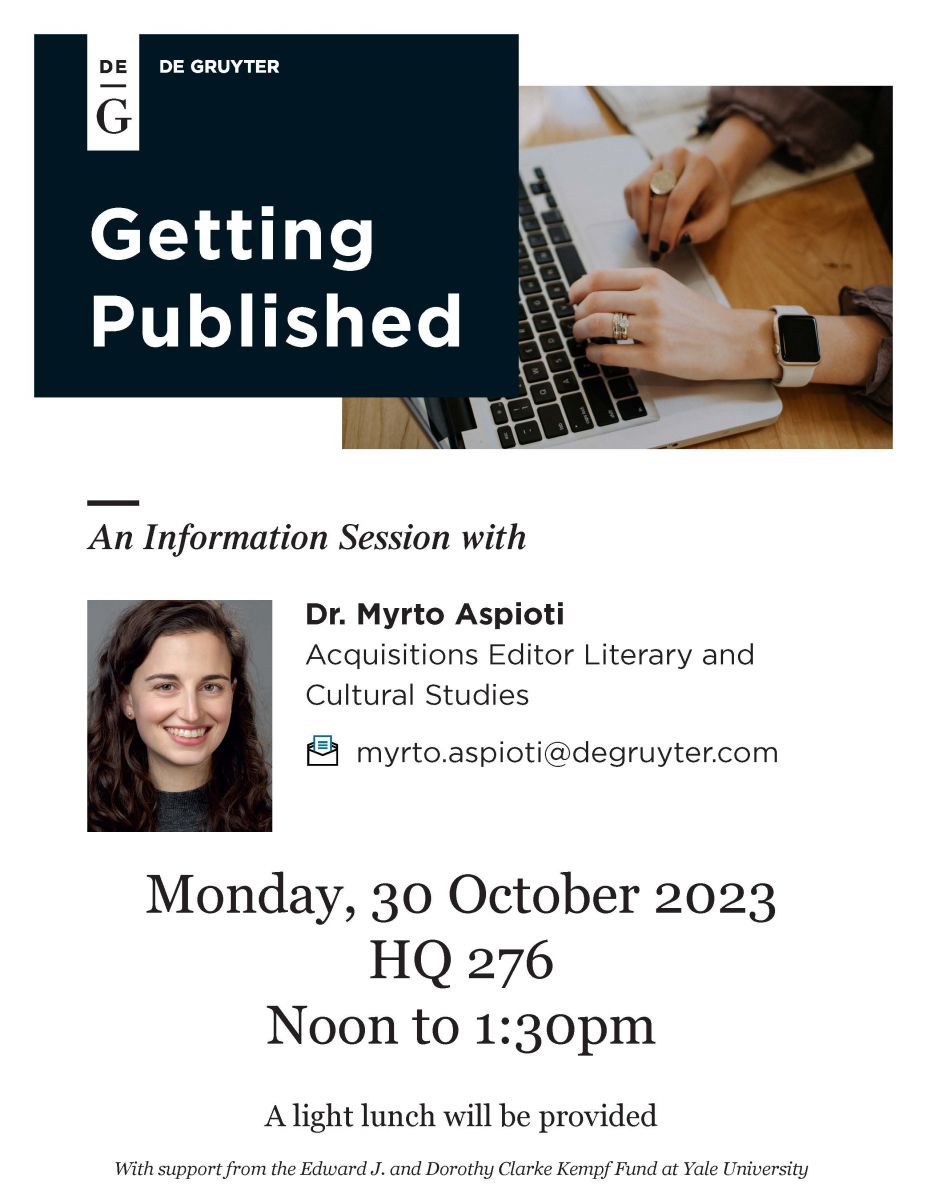 Getting Published: An Information Session with Myrto Aspioti (De Gruyter)
Getting Published: An Information Session with Myrto Aspioti (De Gruyter)
Professor Rahel Jaeggi, Humboldt University, will be giving a series of morning seminars and an afternoon lecture: October 23 - October 25.
Seminars: “Introduction to Critical Theory”
Pre-circulated readings available from Kirk Wetters
Nils Plath
“On Reading Landscapes”
Juliane Prade-Weiss
“Was heißt Klagen Verstehen? Über Freud”
Presented by Yale Film and Media Studies, and Yale Germanic Languages and Literatures.
“Unearthing Early Film Theories”
A Colloquium with Tony Kaes (Berkeley)
Thursday, September 14, 5:30-7:00 pm
212 York St., Room 106
Links to brief readings that will serve as basis of discussion:
“Inheritance” in deconstruction. Colloquium for Harvard/Brown/Yale graduate students of German. Colloquium takes place in Cambridge
Friday April 22, all day
The symposium addresses facets of representation and advocacy – speaking for the other, Fürsprache – in Roman antiquity and early modern times, as a decisive yet often overlooked element of rhetoric, law, and religion. What does it mean and take to speak for an other? Who is the other before whom such an intercession takes place? What is the realm – literally and symbolically – in which ‘speaking for the other’ is possible or allowed? And how can we conceive of the realm that is in turn constituted by Fürsprache?
The symposium addresses facets of representation and advocacy – speaking for the other, Fürsprache – in Roman antiquity and early modern times, as a decisive yet often overlooked element of rhetoric, law, and religion. What does it mean and take to speak for an other? Who is the other before whom such an intercession takes place? What is the realm – literally and symbolically – in which ‘speaking for the other’ is possible or allowed? And how can we conceive of the realm that is in turn constituted by Fürsprache?

